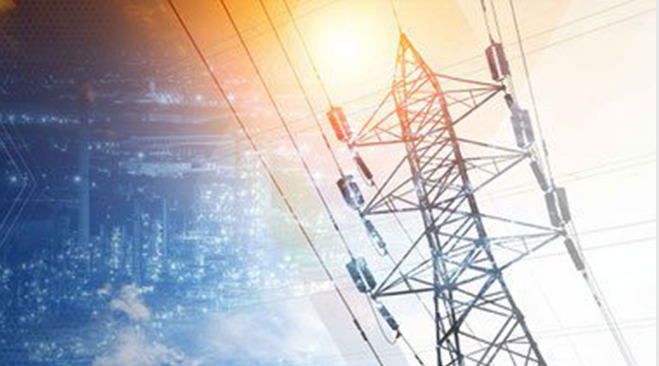বাতৰি
Exploring the Advantages and Applications of Bidirectional DC-DC Converters
Author: ZYG Power Module Time: 2023-7-12
Introduction:
Bidirectional DC-DC converters are a vital component in modern power systems as they enable power flow in both directions, allowing the transfer of energy between different voltage domains. These converters have gained significant attention due to their numerous advantages and wide range of applications. In this article, we will explore the advantages of bidirectional DC-DC converters and discuss their applications in various fields.
Advantages of Bidirectional DC-DC Converters:
1. Power Flow Control: Bidirectional DC-DC converters provide the flexibility to control the power flow between two voltage domains. This feature is particularly useful in energy storage systems, where power needs to be efficiently transferred between the storage device and the load.
2. Energy Efficiency: These converters are highly efficient as they minimize power losses during the energy transfer process. Bidirectional DC-DC converters typically use advanced control algorithms and switching techniques to achieve high conversion efficiency, reducing energy wastage.
3. Voltage Regulation: Bidirectional DC-DC converters enable voltage regulation in different voltage domains. They can convert a high voltage input to a lower voltage output and vice versa, ensuring stable and regulated voltage levels in both domains.
4. Bi-directional Energy Transfer: As the name suggests, bidirectional DC-DC converters allow energy to flow in both directions. This bidirectional capability is crucial in applications such as electric vehicles, where energy needs to be transferred between the battery and the motor during both charging and discharging.
5. Seamless Integration: Bidirectional DC-DC converters can be seamlessly integrated into various power systems. They can be used in renewable energy systems, microgrids, electric vehicle charging systems, and energy storage systems, among others, making them versatile and adaptable to different applications.
Applications of Bidirectional DC-DC Converters:
1. Renewable Energy Systems: Bidirectional DC-DC converters are extensively used in renewable energy systems, such as solar and wind power systems. They enable the transfer of energy between the renewable energy source, energy storage devices (like batteries), and the electrical grid. These converters help regulate the voltage and ensure efficient power flow, maximizing the utilization of renewable energy.
2. Electric Vehicles: Bidirectional DC-DC converters are crucial components in electric vehicle charging systems. They facilitate power transfer between the charging station and the vehicle\’s battery. These converters ensure efficient charging and discharging of the battery, optimizing energy usage and enhancing the overall performance of electric vehicles.

3. Energy Storage Systems: Bidirectional DC-DC converters play a vital role in energy storage systems, which are used to store surplus energy for later use. These converters enable the efficient transfer of energy between the storage device and the load, ensuring seamless power flow and enhancing energy storage system performance.
4. Microgrids: Bidirectional DC-DC converters are essential in microgrids, which are localized power grids that can operate independently or in conjunction with the main electrical grid. These converters enable power flow between different voltage domains in the microgrid, ensuring reliable and efficient operation.
Conclusion:
Bidirectional DC-DC converters offer numerous advantages, including power flow control, energy efficiency, voltage regulation, bi-directional energy transfer, and seamless integration. Their applications span across various fields, including renewable energy systems, electric vehicles, energy storage systems, and microgrids. The continued advancement in bidirectional DC-DC converter technology will further enhance their performance and expand their applications, paving the way for a more efficient and sustainable power system in the future.
পূৰ্ৱবৰ্তী: 12V AC to DC Converter Module: Efficiently Power Your Devices with this Conversion Solution
এটাৰ পাচৰ: Exploring the World of Electric Power: An English Language Series
প্ৰাসংগিক তথ্য
-
2023-4-20
How to Build a 120 Volt AC Power Supply for 3 Volt DC Output
If you looking to power a small device that requires 3 volts of DC power, you may be wondering how to build a suitable power supply. One option is to build your own 120 volt AC power supply and use a voltage regulator to step down the voltage to 3 volts. Here how to do it: Materials: - Step-down transformer (120V AC to 12V AC) - Bridge rectifier - Capacitor - Voltage regulator (LM317) - Heat sink - Resistors - Potentiometer - LED - 3 volt DC load - Soldering iron and solder - Multimeter Step 1: Choose a transformer The first step is to choose a step-down transformer that converts the 120V AC input to 12V AC output. Make...
সবিশেষ চাওক -
2023-5-21
Efficiently Power Your Devices with our 120V AC to 12V DC Converter
Are you tired of constantly having to replace batteries or deal with messy cords and chargers? Our 120V AC to 12V DC converter is the solution you've been looking for. This converter allows you to efficiently power your devices that require 12 volts DC with the standard 120 volts AC power found in most households. Simply plug the converter into a wall outlet and connect your device to the converter. No more worrying about dead batteries or messy cords! Our converter is compact and lightweight, making it easy to take with you on the go. It's perfect for powering devices while traveling or camping. Plus, the durable construction ensures it will withstand the wear and tear of daily use. The...
সবিশেষ চাওক -
2023-5-29
DC DC Converter DP Series: A Reliable Solution for Efficient Power Conversion
DC DC converters are an essential component in electronic systems that require efficient power conversion from one voltage level to another. The DP series DC DC converter is a reliable solution for this purpose, designed to provide high efficiency and reliability in various applications. The DP series DC DC converter is a step-down converter that allows for the conversion of high voltage DC input to a lower voltage DC output. These converters are typically used in battery-powered devices such as smartphones, cameras, and portable electronic devices. They are also used in automotive, industrial, and aerospace applications where the input voltage can be higher than the output voltage. One of the key benefits of the DP series converter is its efficiency....
সবিশেষ চাওক -
2023-5-15
Can you convert 12V AC to 12V DC?
Yes, it is possible to convert 12V AC to 12V DC. This process involves the use of a device called a rectifier, which is designed to convert AC voltage to DC voltage. A rectifier works by using diodes to convert the incoming AC voltage into a pulsating DC voltage. This pulsating DC voltage can then be further processed by a smoothing capacitor, which filters out the pulsations and provides a steady DC voltage output. There are two main types of rectifiers used to convert AC to DC: half-wave rectifiers and full-wave rectifiers. A half-wave rectifier only allows half of the incoming AC waveform to pass through, while a full-wave rectifier allows the entire waveform to pass through. Full-wave rectifiers are...
সবিশেষ চাওক -
2023-9-2
AC DC Power Supply Module: Efficient and Reliable Solution for Electrical Applications
Introduction Electricity is an essential part of our everyday lives. From charging our electronic devices to powering industrial machinery, we rely on a stable and efficient power supply to ensure smooth operations. One crucial component that plays a vital role in providing the required power is the AC DC power supply module. This article will delve into the various aspects of this module, highlighting its efficiency and reliability in electrical applications. Efficiency in Power Conversion The AC DC power supply module is designed to convert alternating current (AC) from the mains power supply into direct current (DC) to power electronic devices. One of its key advantages is its high efficiency in power conversion. With advancements in technology and design, modern...
সবিশেষ চাওক -
2023-5-9
Efficient Industrial AC-DC Converter for Reliable Power Conversion
Introduction In modern industrial applications, efficient power conversion is essential in ensuring reliable and continuous performance of different systems. AC-DC converters are commonly used in industrial power systems to convert AC power to DC power, which is then used to drive various loads. However, conventional AC-DC converters are quite inefficient, leading to significant losses and energy wastage. This paper presents an efficient industrial AC-DC converter that is designed to offer reliable power conversion for various industrial applications. Efficient Industrial AC-DC Converter Design The efficient industrial AC-DC converter is designed based on the flyback topology, which is known for its high efficiency and simplicity. The converter is designed to operate in continuous conduction mode (CCM) to eliminate the reverse recovery losses...
সবিশেষ চাওক


















